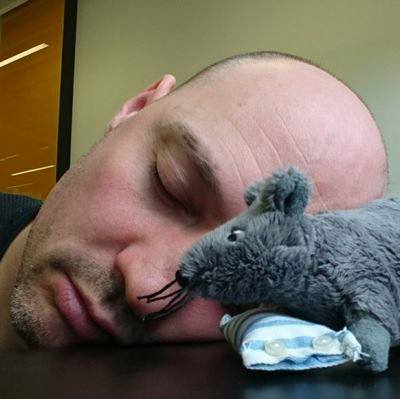 “How was I supposed to explain what I study to my mother, who went to a vocational school and didn’t even have a clear idea what a molecule, a cell, or DNA actually is?”
“How was I supposed to explain what I study to my mother, who went to a vocational school and didn’t even have a clear idea what a molecule, a cell, or DNA actually is?”
Stephanie Kainrath is a molecular biologist who is working on her PhD at the Institute of Science and Technology, in Austria. She wants to spend her life learning new things, and a PhD seemed like the perfect opportunity to turn learning and discovery into a full-time job.
Stephanie is particularly passionate about communicating science to lay audiences. She has no other scientists or academics in her family. Thus, it’s a necessity to her to be able to explain her work in simple terms. She realized that science communication reaches its limits where primary education had already failed.
We are constantly bombarded with ‘facts’ and have to decide whether they are true or not. In order to deal with this situation, people need a basic grasp of the sciences. This is why Stephanie tries to give lay people a better idea of what our world is made of and how it works. Stephanie used to spend a lot of time, for example, on social media arguing with people who don’t ‘believe’ in the existence of antibodies, viruses, or even infectious diseases. Her goal wasn’t primarily to change the minds of these people. More importantly, she challenged these misguided believes publicly, to convince silent readers of the scientific evidence.
On @SfProcur, Stephanie will discuss the necessity and impact of early science education, and how ‘science outreach’ could actually reach those who aren’t already interested in science. She doesn’t have a solution to these problems, but wants to identify the core problems.
Stephanie believes that lay audiences without a scientific background, need to be reached, most of all. Thus, she wants to motivate other scientists to do science communication as part of their daily lives. More scientists should feel encouraged to explain their work to people without a background in science.
background
(more…)
about Dennis Eckmeier
Dennis founded Science for Progress. He received a PhD in neuroscience in 2010 in Germany. Until 2018 he worked as a postdoc in the USA, and Portugal. In 2017 he co-organized the March for Science in Lisbon, Portugal. Dennis is currently a freelancer.

 “How was I supposed to explain what I study to my mother, who went to a vocational school and didn’t even have a clear idea what a molecule, a cell, or DNA actually is?”
“How was I supposed to explain what I study to my mother, who went to a vocational school and didn’t even have a clear idea what a molecule, a cell, or DNA actually is?”
